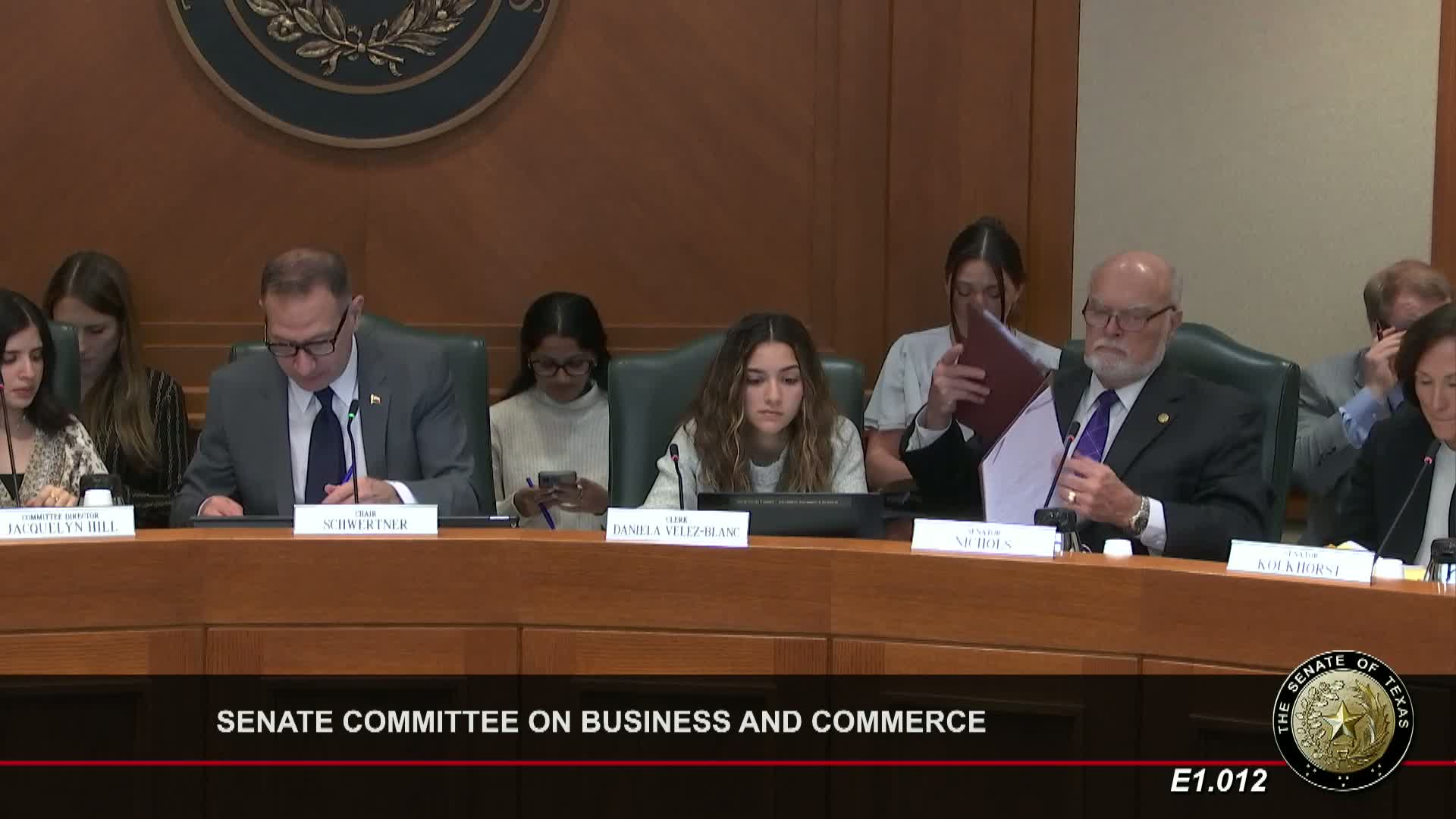Article not found
This article is no longer available. But don't worry—we've gathered other articles that discuss the same topic.
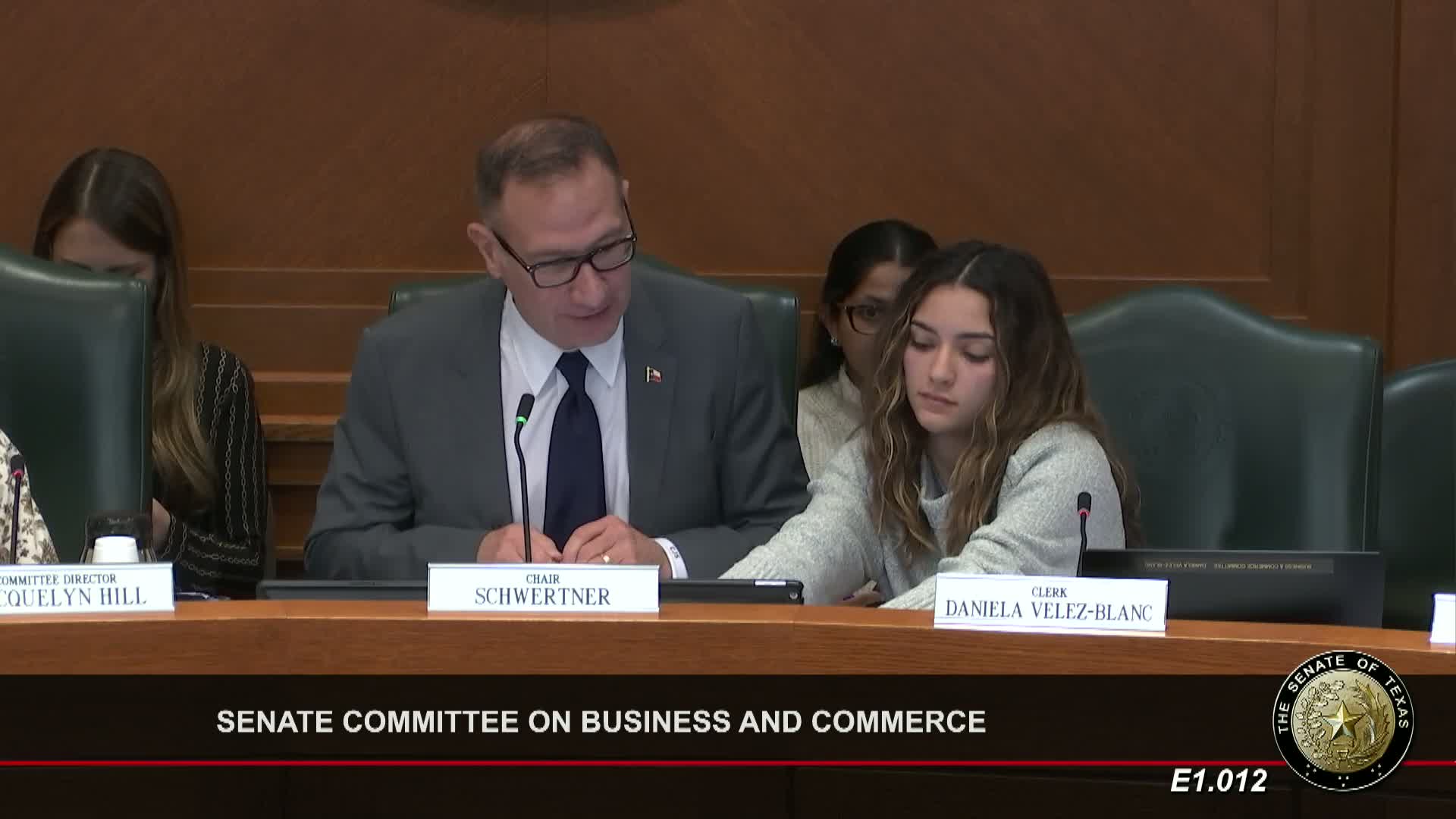
Lawmakers push commission and tabletop exercises to evaluate all‑hazards threats to Texas grid; industry seeks limits and coordination
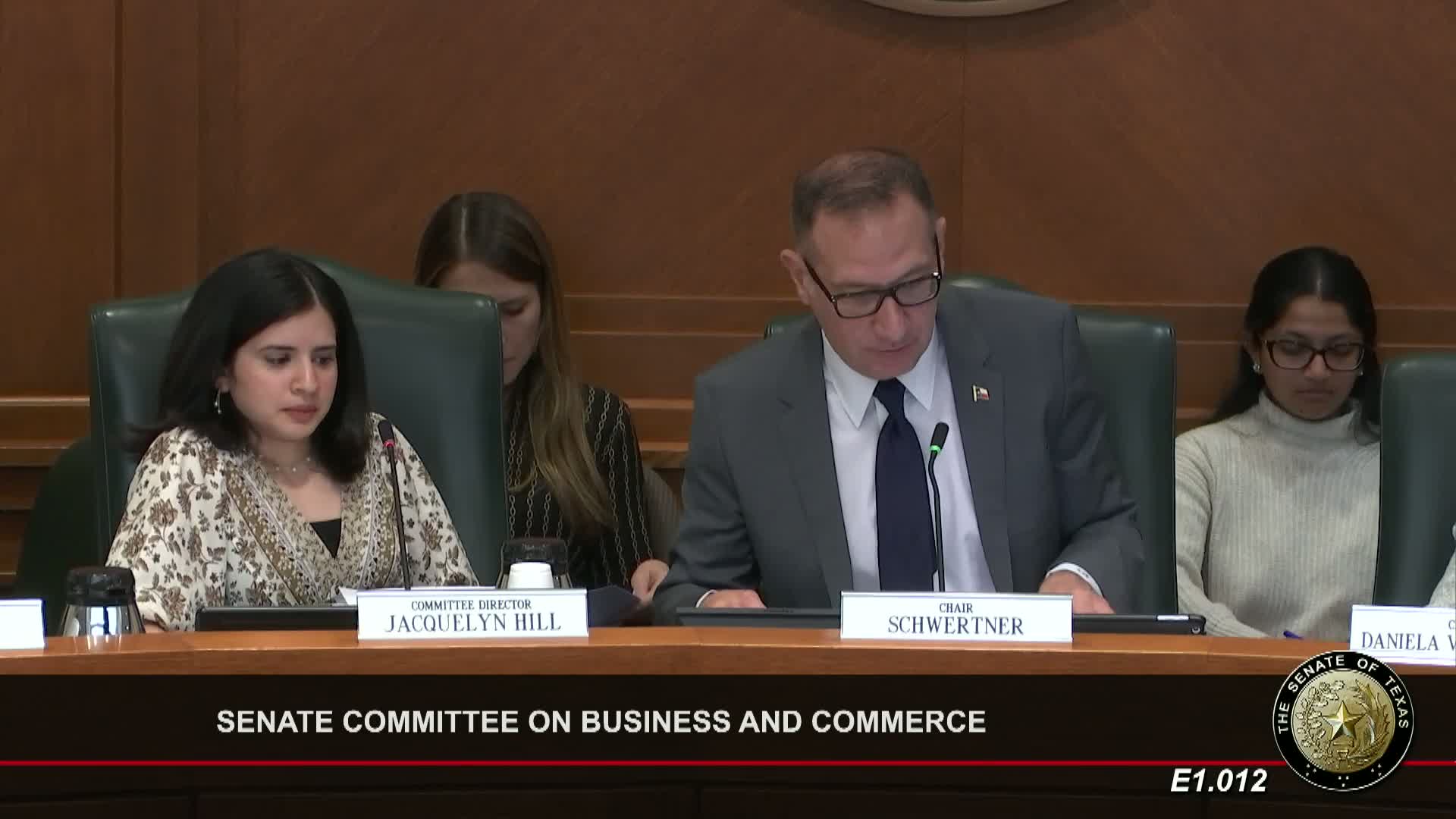
Bill would extend generator reliability standard to existing plants; supporters say it levels the playing field, opponents warn of retroactive costs
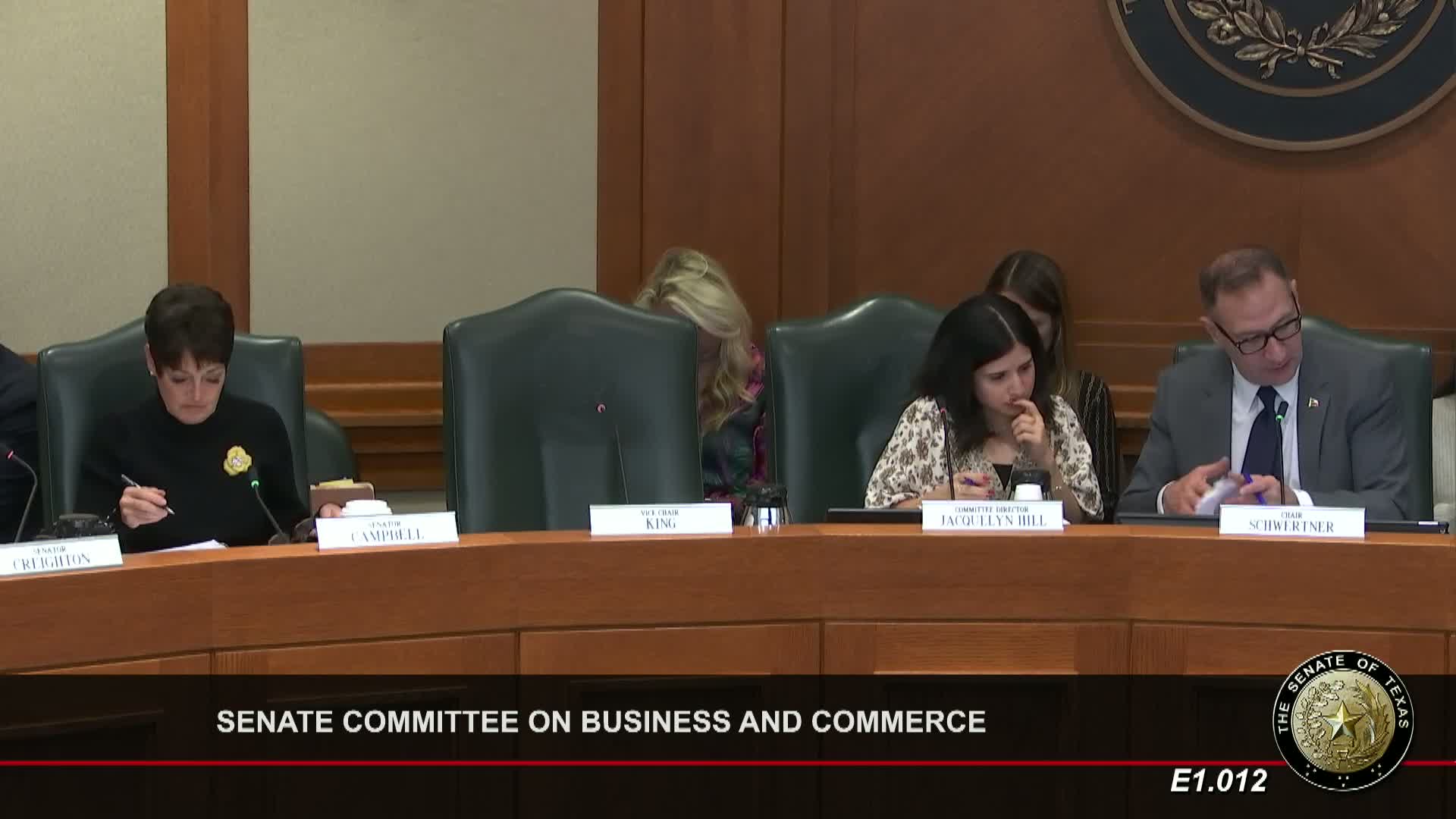
Bill would ban contract clauses making contractors pay for owner-caused delays; contractors and water authorities split on impact
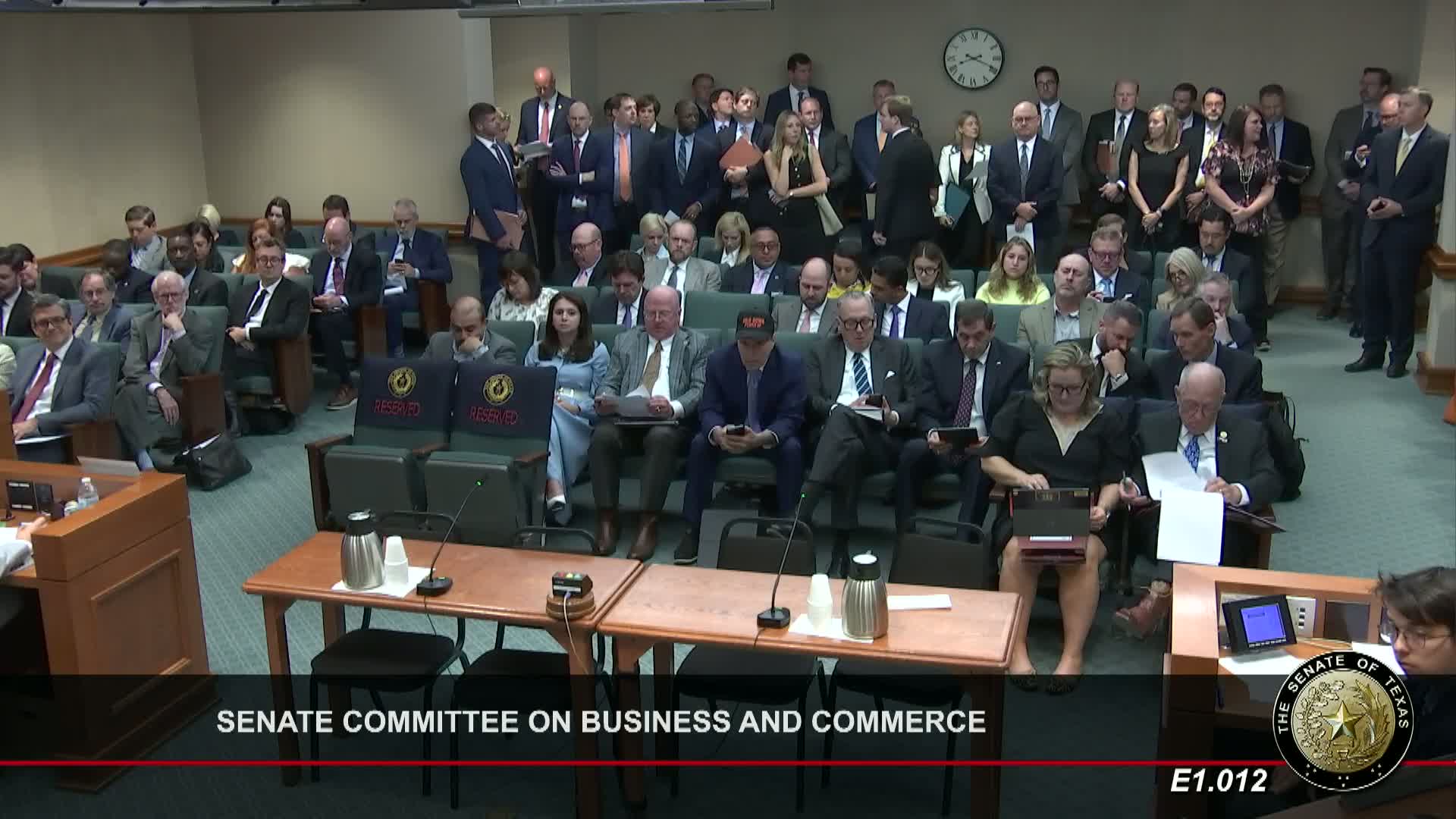
Bill would codify current practice of ERCOT–TCEQ coordination on environmental limits for backup generation; Sierra Club and local leaders support with caveats
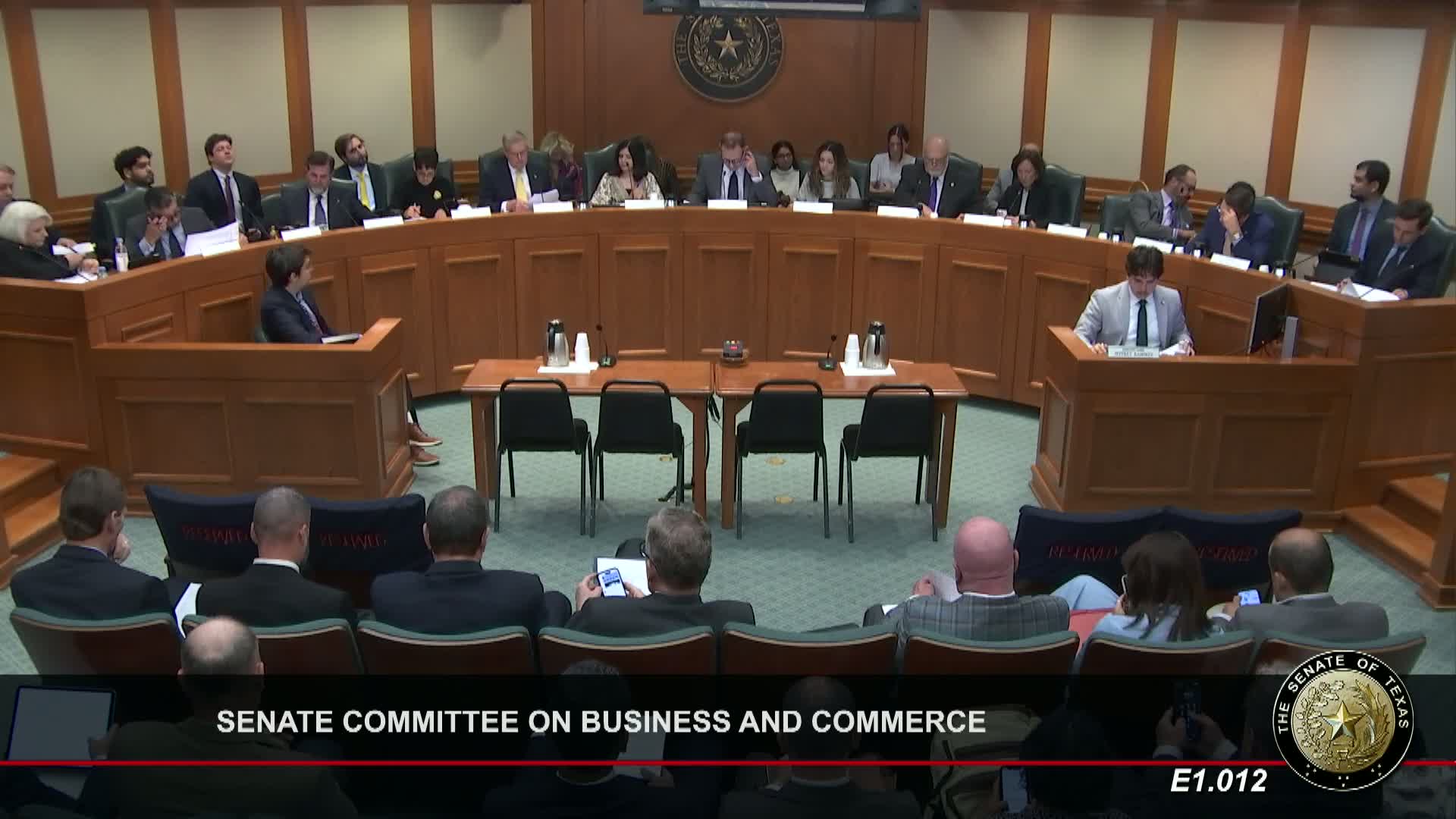
Committee hears bill to update real estate agency rules; Texas Realtors support written buyer agreements
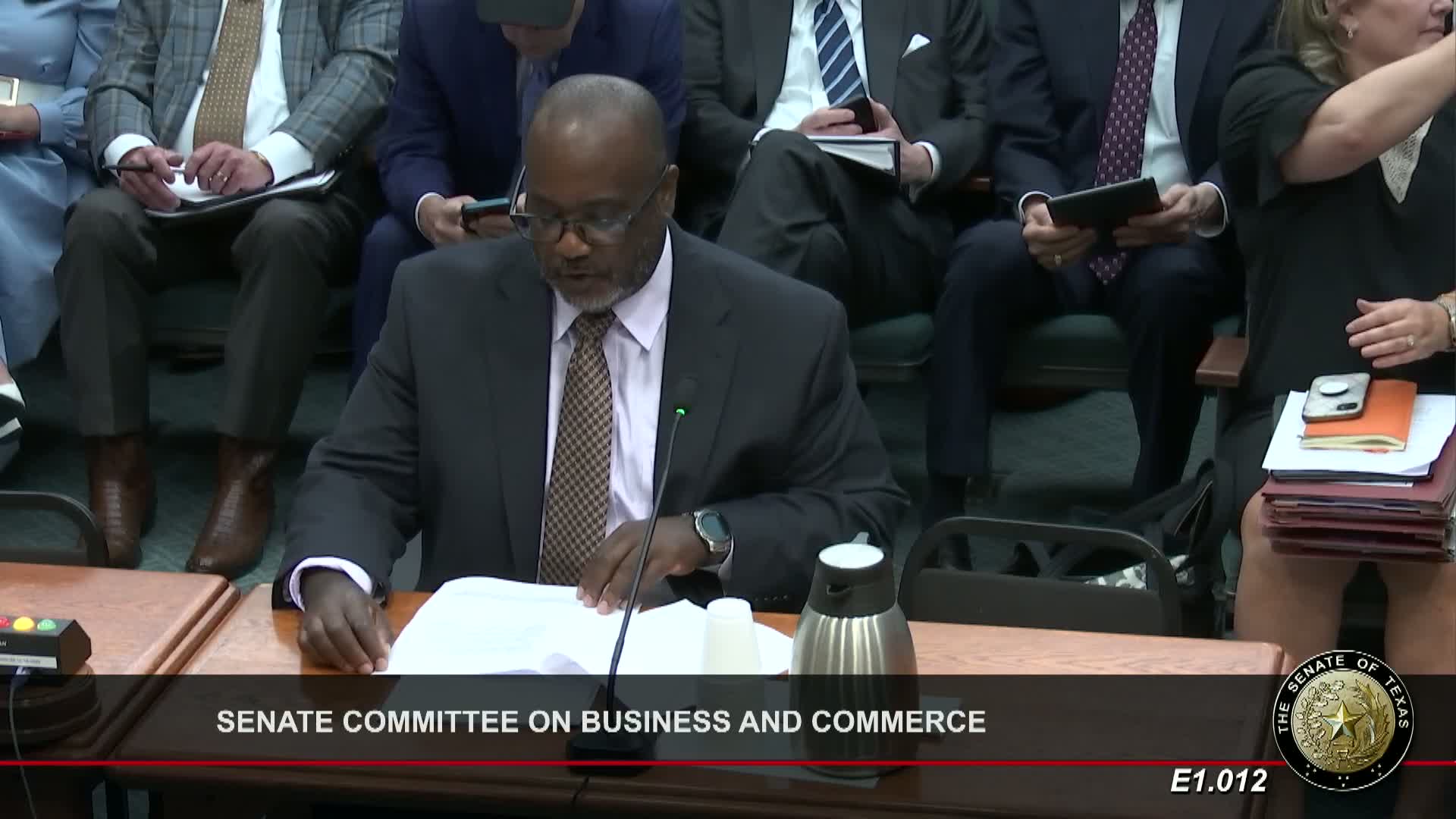
Committee reports multiple bills favorably; several sent to local uncontested calendars
